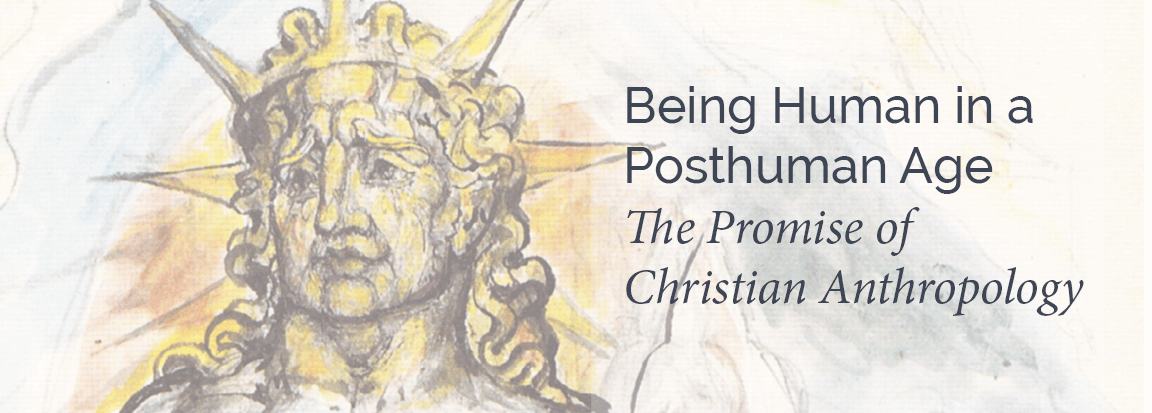AEF 2018 – Being Human in a Posthuman Age: The Promise of Christian Anthropology
June 7-8, 2018 | Trinity School for Ministry | Ambridge, PA
What does it mean to be human? What does it be mean to be made in God’s image? Many observers agree that Western society is becoming increasingly “posthuman” – dismissive of historic notions of the unique worth and dignity of human beings. How does a Christian theology of human nature – a Christian anthropology – engage this trend? And how does it inform the way we respond to related issues such as euthanasia and abortion, marriage and sexuality, genetic engineering, or race relations? This year’s Ancient Evangelical Future Conference will engage these questions and their significance for the life of the Church today.
Featured speakers:
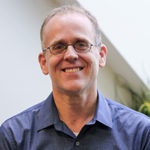 Marc Cortez (PhD, University of St. Andrews) is Professor of Theology at Wheaton College. Cortez has authored numerous books on the doctrine of humanity including Resourcing Theological Anthropology, Christological Anthropology in Historical Perspective, and Theological Anthropology: A Guide for the Perplexed. He particularly enjoys writing and speaking about what it means to say that Jesus reveals true humanity and how this shapes Christian life and ministry today
Marc Cortez (PhD, University of St. Andrews) is Professor of Theology at Wheaton College. Cortez has authored numerous books on the doctrine of humanity including Resourcing Theological Anthropology, Christological Anthropology in Historical Perspective, and Theological Anthropology: A Guide for the Perplexed. He particularly enjoys writing and speaking about what it means to say that Jesus reveals true humanity and how this shapes Christian life and ministry today
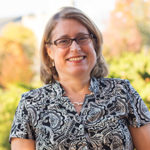 Christina Bieber Lake (PhD, Emory University) is the Clyde S. Kilby Professor of English at Wheaton College, where she teaches classes in contemporary American literature and literary theory. A frequent contributor of essays on fiction, ethics, and film, she has authored several essays on Flannery O’Connor as well as a monograph entitled The Incarnational Art of Flannery O’Connor. Her most recent book, and winner of the 2014 Aldersgate Prize for integrative Christian scholarship, is Prophets of the Posthuman: American Fiction, Biotechnology, and the Ethics of Personhood.
Christina Bieber Lake (PhD, Emory University) is the Clyde S. Kilby Professor of English at Wheaton College, where she teaches classes in contemporary American literature and literary theory. A frequent contributor of essays on fiction, ethics, and film, she has authored several essays on Flannery O’Connor as well as a monograph entitled The Incarnational Art of Flannery O’Connor. Her most recent book, and winner of the 2014 Aldersgate Prize for integrative Christian scholarship, is Prophets of the Posthuman: American Fiction, Biotechnology, and the Ethics of Personhood.
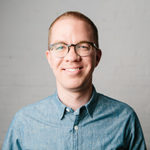 Wesley Hill (PhD, Durham University) is Associate Professor of New Testament at Trinity School of Ministry. He is the author of Washed and Waiting: Reflections on Christian Faithfulness and Homosexuality; Paul and the Trinity: Persons, Relations, and the Pauline Letters; and Spiritual Friendship: Finding Love in the Church as a Celibate Gay Christian (Brazos, 2015). He writes regularly for Christianity Today as well as for First Things, The Living Church, Comment magazine, and other publications.
Wesley Hill (PhD, Durham University) is Associate Professor of New Testament at Trinity School of Ministry. He is the author of Washed and Waiting: Reflections on Christian Faithfulness and Homosexuality; Paul and the Trinity: Persons, Relations, and the Pauline Letters; and Spiritual Friendship: Finding Love in the Church as a Celibate Gay Christian (Brazos, 2015). He writes regularly for Christianity Today as well as for First Things, The Living Church, Comment magazine, and other publications.
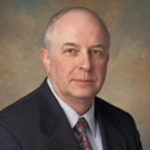 Gilbert Meilaender (PhD, Princeton University) is Senior Research Professor at Valparaiso University and the Paul Ramsey Fellow at the Notre Dame Center for Ethics and Culture. He is the author of many books and articles in the field of Christian ethics. Among his books are Friendship: A Study in Theological Ethics; Faith and Faithfulness: Basic Themes in Christian Ethics; and Bioethics: A Primer for Christians. Dr. Meilaender’s work in the area of bioethics is well known. He is a Fellow of the Hastings Center and was a member of the President’s Council on Bioethics from 2002 to 2009.
Gilbert Meilaender (PhD, Princeton University) is Senior Research Professor at Valparaiso University and the Paul Ramsey Fellow at the Notre Dame Center for Ethics and Culture. He is the author of many books and articles in the field of Christian ethics. Among his books are Friendship: A Study in Theological Ethics; Faith and Faithfulness: Basic Themes in Christian Ethics; and Bioethics: A Primer for Christians. Dr. Meilaender’s work in the area of bioethics is well known. He is a Fellow of the Hastings Center and was a member of the President’s Council on Bioethics from 2002 to 2009.
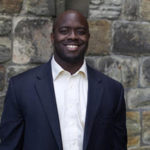 Esau McCaulley (PhD, University of St. Andrews) is Assistant Professor of New Testament and Early Christianity at Northeastern Seminary. An Anglican priest, he has served across many professional and cultural contexts as a rector and spiritual life director. His scholarly research has focused on Paul’s letters to the Galatians and Romans, and Second Temple Judaism and Greco-Roman backgrounds to the New Testament. He is also director of the Anglican Multiethnic Network of the Anglican Church in North America.
Esau McCaulley (PhD, University of St. Andrews) is Assistant Professor of New Testament and Early Christianity at Northeastern Seminary. An Anglican priest, he has served across many professional and cultural contexts as a rector and spiritual life director. His scholarly research has focused on Paul’s letters to the Galatians and Romans, and Second Temple Judaism and Greco-Roman backgrounds to the New Testament. He is also director of the Anglican Multiethnic Network of the Anglican Church in North America.
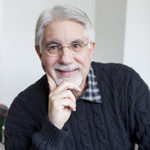 Bradley Nassif (PhD, Fordham University) is Professor of Biblical and Theological Studies at North Park University. He is a specialist in Eastern Orthodoxy in both ancient and modern worlds, and has served as a consultant to The New York Times and Christianity Today. He is editor of New Perspectives on Historical Theology: Essays in Memory of John Meyendorff; co-editor of The Philokalia: A Classic Text of Orthodox Spirituality; and editorial board member for the five-volume Encyclopedia of Christianity in the United States.
Bradley Nassif (PhD, Fordham University) is Professor of Biblical and Theological Studies at North Park University. He is a specialist in Eastern Orthodoxy in both ancient and modern worlds, and has served as a consultant to The New York Times and Christianity Today. He is editor of New Perspectives on Historical Theology: Essays in Memory of John Meyendorff; co-editor of The Philokalia: A Classic Text of Orthodox Spirituality; and editorial board member for the five-volume Encyclopedia of Christianity in the United States.
As in past years, the Ancient Evangelical Future Conference also includes a mix of lectures, panel discussions, and break-out discussion groups in a welcoming atmosphere that links theory and practice. Each day of the event is bounded by the liturgies of Morning and Evening Prayer, and flavored with table-fellowship. Join others in this unique opportunity for reflection, retrieval, and refreshment for the sake of the life and ministry of the Church today.


